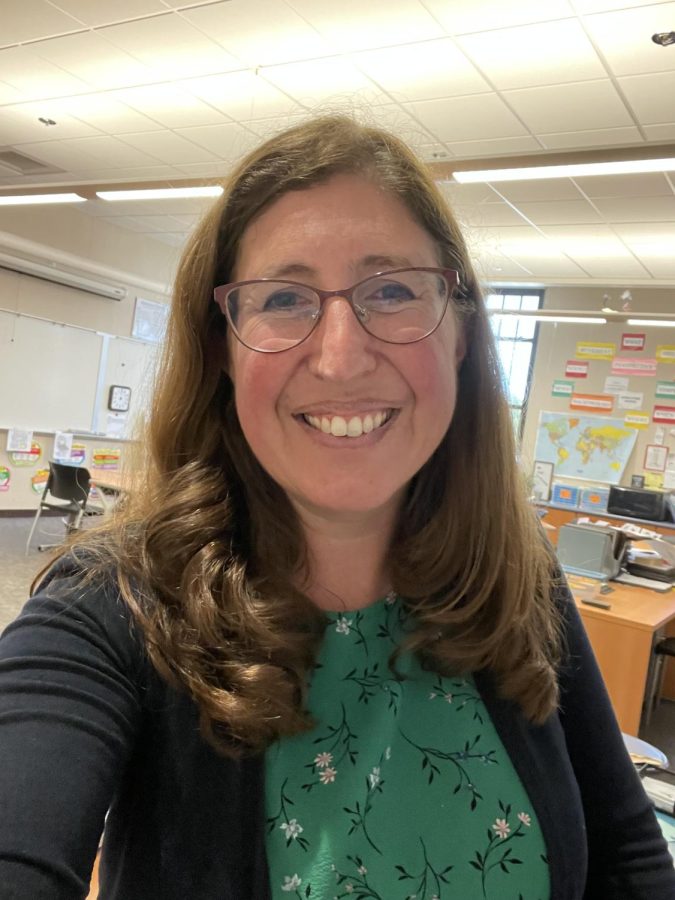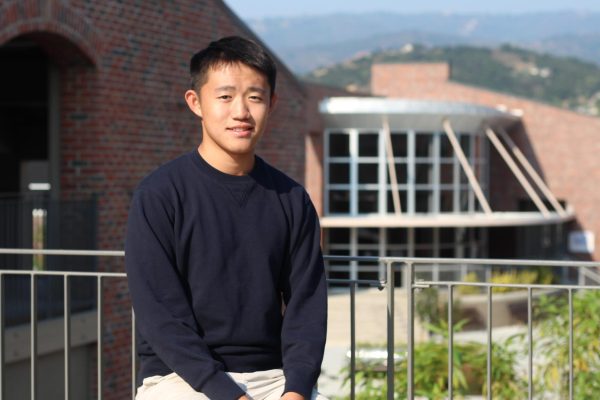New Instructional Lead for English Language Development
FUHSD implements Instructional Lead position to support ELD teachers and curriculum
ELD 2 teacher Shari Russell will be taking the new Instructional Lead position starting in the 2023-24 school year. Photo courtesy of Shari Russell | Used with permission
June 1, 2023
FUHSD plans to implement a new Instructional Lead position to support English Language Development classes throughout the district, effective during the 2023 to 2024 school year. According to FUHSD Coordinator of Curriculum and Teacher Leadership, Welton Kwong, the teacher who takes this position is meant to support ELD teachers to “ensure that [the] students are learning at optimal levels.”
“This teacher lead might, for example, help teachers plan certain lessons so that English [learning] students can access those lessons,” Kwong said. “This teacher might go into classrooms so that they can talk about what’s happening in the classrooms and how students are learning. So essentially, this teacher is really helping in multiple ways: one of which is [the planning] of the curriculum — and then the other part is how students are learning, so what happens in the actual classroom.”
According to Sheltered Literature and Writing teacher Julia Satterthwaite, the position was developed by the Professional Learning Advisory Team of Educators (PLATE), a group consisting of administrators, teachers, parents and students. Satterthwaite says the group meets to identify and address issues in the district, and one issue they recently focused on involved support for ELD classes.
“Earlier this year PLATE decided they wanted to try to talk about the ELD population because they felt like there maybe weren’t enough resources being provided, so what they wanted to do was to figure out what kind of supports would be helpful,” Satterthwaite said. “The solution was that they were going to add an ELL [English Language Learner] lead similar to the other district curriculum coordinator positions, and that person is a .2 teacher, meaning they teach one class and for the rest of the period, they’re assigned to help assist ELD and sheltered teachers.”
Current ELD 2 teacher Shari Russell will be taking the instructional lead position. Russell plans to start collecting information about the ELD classes throughout the district to formulate a framework for improving ELD courses.
“I’d like to start talking with teachers at different sites, different ELD levels, sheltered and there’s language learners who aren’t in a sheltered program at all, so I’d like to connect with students and then start getting to know different teachers and what their experience is,” Russell said. “I want to know more about what’s actually happening in classrooms right now. And then I can start to put together the puzzle of best practices and which groups need what support so that I can start developing professional development opportunities, coaching opportunities [for] individual teachers or collaborative groups across the district.”
Kwong says one method the district uses to provide ELD teachers with teaching support is professional development workshops, where teachers attend learning sessions. However, Kwong says the one day workshops often prove to be inadequate and that the district “needed someone to follow up all the professional learning, so that it doesn’t doesn’t just stop after one workshop.” He hopes that the new position will be more effective in helping new sheltered or ELD teachers become accustomed to teaching their courses and will make learning English more meaningful to students.

“Newer teachers who have not taught English learners before might not have the experience in sort of preparing a lesson that’s for English learners,” Kwong said. “A teacher might know how to teach Biology very well, but to bring in the language components, how do students understand the very challenging vocabulary for Biology? That might be something new for some teachers who haven’t really taught English learners before.”
Satterthwaite agrees that ELD curriculum can be challenging to new teachers, mentioning how students do not have knowledge that is often taken for granted. As a result, usual teacher training differs greatly from training needed for EL courses.
“When you’re training to be an English teacher for high school, you’re not trained in how to teach reading,” Satterthwaite said. “You’re not trained in phonics, you’re not trained in how to teach the colors. I know my friend Emer [Martin], from Fremont, she was teaching [her ELD 1 students] ear, nose and mouth. Because when you’re training to teach high school, there’s the presumption that they know how to read, and that is incorrect.”
Russell is eager to take up her new role since she sees it as an opportunity to provide help to a large range of students and teachers. She hopes to provide more equity among EL classes in the district.
“Students that I’ve worked with and that are identified primarily as language learners have taught me so much about taking academic risks, being vulnerable, trying new things, sharing what you’re doing and why you’re doing it,” Russell said. “I just feel this is something I can do to give back to my students. I can help our community meet needs that they don’t even know that they have yet and that may not have even been clearly identified yet. I would like to use this energy that I have and this passion to support [others] in this way.”


















